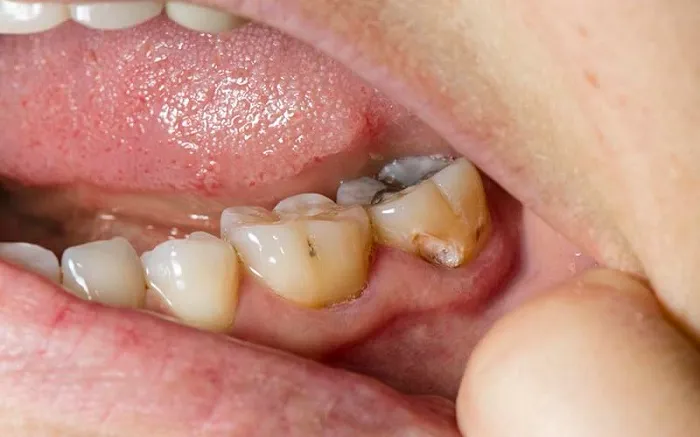Dental fillings are among the most common restorative treatments in modern dentistry. They are used to repair decayed or damaged teeth and restore normal function. However, many patients wonder: Do cavity fillings eventually go away? This question reflects a deeper concern about the lifespan of fillings, how they wear down, and what to expect over time.
This article offers a comprehensive explanation of cavity fillings, how long they last, what causes them to degrade, and what you can do to maintain them. It will help you understand how fillings function, when they need replacement, and why regular dental care is essential for oral health.
Understanding Dental Fillings
What Is a Cavity Filling?
A cavity filling is a restorative dental material used to fill the hollow space left after a dentist removes decayed tissue from a tooth. The main goal is to stop further decay and protect the inner structure of the tooth.
Types of Filling Materials
There are several kinds of dental filling materials. Each one has unique characteristics.
1. Amalgam Fillings
- Made from a combination of metals like silver, tin, copper, and mercury.
- Known for strength and durability.
- Commonly used in back teeth.
2. Composite Resin Fillings
- Made from a tooth-colored plastic and glass mixture.
- More aesthetically pleasing than metal.
- Best for visible areas of the mouth.
3. Ceramic Fillings
- Made from porcelain.
- Resistant to staining.
- Suitable for people who want a natural look.
4. Gold Fillings
- Made of gold alloy.
- Very durable and long-lasting.
- Typically more expensive.
5. Glass Ionomer Fillings
- Release fluoride to help protect the tooth.
- Not as durable as other materials.
- Often used in baby teeth or non-chewing surfaces.
Do Fillings Go Away Over Time?
The Short Answer: No, They Don’t Just Disappear
Cavity fillings do not “go away” on their own. However, they can wear down, break, or fall out due to various factors.
Why Fillings Don’t Last Forever
Fillings are durable but not permanent. They face constant stress from chewing, biting, and grinding. Over time, these forces may cause fillings to loosen or degrade.
Factors That Affect Filling Longevity
Type of Filling Material
- Amalgam fillings last about 10 to 15 years.
- Composite resin fillings last around 5 to 7 years.
- Gold fillings can last over 15 years.
- Ceramic fillings may last 10 years or more.
- Glass ionomer fillings may need replacement in 5 years or less.
Oral Habits
- Teeth grinding (bruxism) shortens the life of a filling.
- Nail-biting and chewing hard foods can also cause damage.
Size and Location of the Filling
- Larger fillings are more likely to wear out.
- Fillings in molars face more pressure and tend to fail sooner.
Oral Hygiene
- Poor brushing and flossing lead to decay around the filling edges.
- Bacteria may enter, causing the filling to become loose or ineffective.
How Fillings Deteriorate
Signs Your Filling May Be Failing
Tooth Sensitivity
- Discomfort when eating hot, cold, or sweet foods.
Sharp Edges or Rough Texture
- This could mean the filling is wearing down or has chipped.
Discoloration
- Dark spots or stains around the filling may signal decay or leakage.
Pain or Discomfort
- Pain when biting down might indicate a cracked filling.
A Loose or Missing Filling
- In some cases, a filling may fall out entirely.
Common Reasons for Filling Failure
Recurrent Decay
- Decay around or under the filling can loosen the bond.
Physical Stress
- Clenching and grinding weaken the structure.
Wear and Tear
- Fillings naturally erode over time due to daily use.
Material Breakdown
- Some materials are more prone to shrinking or cracking.
How Long Should You Expect Your Filling to Last?
When to Replace a Filling
Fillings should be replaced when:
- They fall out.
- They crack or chip.
- Decay is detected underneath.
- They cause sensitivity or pain.
Maintaining Your Dental Fillings
Daily Oral Hygiene
- Brush twice a day with fluoride toothpaste.
- Floss daily to remove plaque from between teeth and around fillings.
Avoiding Harmful Habits
- Don’t chew ice, pens, or hard candies.
- Avoid using your teeth to open packaging.
Night Guards for Bruxism
- If you grind your teeth at night, a custom mouthguard can protect fillings from excessive wear.
Regular Dental Visits
- Visit your dentist every 6 months.
- Professional cleanings and exams help detect early signs of filling failure.
The Importance of Dental Checkups
Why Monitoring Fillings Matters
Fillings can mask early signs of new decay. Your dentist will check the condition of fillings during each visit to prevent complications.
What Dentists Look For
- Integrity of the filling material.
- Gaps or leakage around the filling.
- Signs of wear, fracture, or new decay.
X-Rays and Diagnosis
Dentists may use x-rays to check for hidden issues, such as decay under the filling or between teeth.
Can You Repair a Filling?
Minor Repairs Are Sometimes Possible
Small chips or cracks may be smoothed or patched.
Complete Replacement Is Often Required
When fillings are broken or loose, they are typically removed and replaced with new material.
Choosing the Right Filling Material
Factors to Consider
- Location of the cavity.
- Aesthetic concerns.
- Budget.
- Durability requirements.
Discuss With Your Dentist
A professional evaluation can help you choose the material that suits your needs and lifestyle.
Conclusion
Fillings do not vanish or dissolve naturally, but they are not lifetime solutions. Their durability depends on the material used, your oral habits, and how well you maintain your dental health. Understanding the signs of filling failure and seeking timely dental care are key to preserving your teeth and preventing further decay.
If you experience any discomfort, notice damage, or simply haven’t seen a dentist in a while, schedule a check-up. Staying informed and proactive helps ensure that your dental fillings continue to do their job effectively for years to come.
Related topics:

